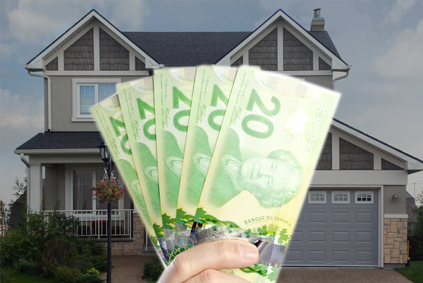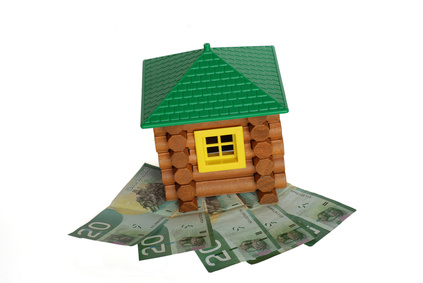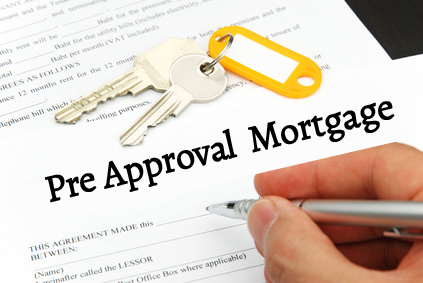You decide that you want to have a place to call home. However, the process of looking, finding and paying for your dream home can be stressful and overwhelming, especially for first-time homeowners.
What are the steps involved when buying a home? We at GT Mortgages will give you a brief guide to the process in the hope that your homeownership journey will be seamless.
1. Decide whether homeownership is right for you?
It is not enough to desire to own a real estate property. You need to plan for it. Check your finances, are you in a position to pay for a house? If possible have a budget on the amount that you can comfortably set aside for the down payment and additional costs.
You will need money for insurance, land registration, home inspection, legal fees, moving costs, etc.
2. Find out which mortgage options are available to you
You have probably heard of mortgage pre-approval. It is advisable to know the mortgage options that you qualify for before the house hunting process begins. Use a trusted mortgage expert for this.
Pre-approval is a process; you can learn more about it on 3 Things You Need To Know about Mortgage Pre-Approval.
3. House Hunting
Now that you know which mortgage you can qualify for, it is now time to focus on the kind of home that you would like. Have a long-term view of the house and not just what you desire now. What size would you want the home to be?
Do you want to live in the suburbs or right in the central business district? Find a reliable realtor who will negotiate the best prices for you and one who has your interests at heart. Get hold of a Real Estate Lawyer, he or she will explain to you the intricacy of the home buying process, and give you advice before you append your signature to any document.
4. Make an Offer
After visiting several houses and are lucky to find a property that meets the criteria of your checklist, it is time to make an offer to the seller. It is a document that includes your name, closing date, conditions, etc.
The seller has three options, to accept, reject or counter the offer. Negotiation is typical at this stage to ensure that both you and the seller get the best deal.
5. Finalize the Deal
If the seller accepts your offer, you can then go ahead and complete your financing by getting approval for a mortgage. Use your lawyer to polish the details about insurance and conditions of the offer.
6. Closing Date
It is the day when you take legal possession of the property. You will likely meet in your lawyer’s office to complete the paperwork involved, finalize payments, receive the deed and key for the house.
Maneuvering the Toronto mortgage market can be daunting to many. With the help of our expert mortgage agents, you will be able to find a mortgage product that meets your needs. The house buying process will no more be an overwhelming task for you.
Author: every_gtmortgage
Chris D.
I took a chance with GT Mortgages as the term of my lease came to an end. They advised me to transfer and not renew. That was the best gift as I now have a few more payments to make before I finish repaying the loan amount, five years down the line.
Jane K.
We always partner with GT Mortgages, in everything dealing with mortgages for our business. They have never failed to deliver their end of the bargain.
Lewis S.
My wife and I had the pleasure of working with GT Mortgages on developing our piece of land. They were accommodating and would offer us sound advice and guidance in everything we did. Thanks.
Mark C.
GT Mortgages helped me find an ideal mortgage for my home. I will always be grateful to them. It made searching for homes much easier.
What you need to Know about Cash Back Mortgages?
As you plan to buy your dream home, whether for the first time or as an additional place to call home, you may realize that you need a few more extra bucks on top of the down payment. The money could be for paying for the costs incurred in the home buying process, to furnish the house or even to simply have a safety net for the few months of adjusting to the new home.
Several lenders in Canada offer Cash Back Mortgages. The mortgage works in such a way that the bank gives you an advance cash lump sum when the mortgage closes. The amount you receive may vary from 1% to 7%, depending on the lender, but the common denominator is a 5% cash rebate.
Properties of a Cash Back Mortgage
- Have a Fixed Interest Rate
These mortgages come with a fixed interest rate that you will pay over the term of the lease contract. The rates are also, usually higher than the other standard mortgages. It is so, as a way to compensate the lender for letting you borrow extra money.
- To qualify, you need to have good credit
Most of the lenders who offer cash back mortgages are A-paper lenders. Thus, the usual criteria used to offer mortgages, also applies here. Typically, the mortgage is available to individuals with an average to good credit score.
- Penalties on early repayments
Depending on the lender and mortgage contract, you may have to pay the cash back rebate in full or only a portion of it. It applies to those borrowers who would like to break the mortgage term early or refinance. If you have to pay a portion of the amount it will be a Pro-rated amount.
This amount is calculated depending on the number of months remaining in the term of your mortgage contract.
Even though taking a cash back mortgage may not be ideal for everyone, it could be a good choice for a borrower who needs a financial boost when making such a significant financial transaction for your dream home. It is so, more so, if you don’t mind paying a higher interest rate as compared to others.
Is a Cash Back Mortgage Right for You?
Just as the name suggests, a cash back mortgage is a deal where the lender gives you a cash rebate when the mortgage closes. You could get the cash up front, that is before you start making your monthly mortgage repayments or not. It all depends on the lender.
If you continue your mortgage to the end of the negotiated term of the contract, you won’t pay the cash, back to the lender directly. It is paid in the form of high-interest rates on the entire mortgage; a characteristic of Cash Back mortgage deals.
When could it be ideal to take this mortgage?
Since you will be paying higher interest on your mortgage as compared to other borrowers, you may be deterred from settling for a cash back mortgage. However, there are instances that you may need to consider it. They include:
- When you received a helping hand in making the down payment on your house but need a financial boost to be able to take the responsibility of homeownership
- You could consider it if you had to withdraw the down payment out of your RRSP. You may need additional cash to pay other expenses, e.g. moving, legal, closing costs, etc.
- You need a few extra bucks to act as a buffer for a few extra months as a new home owner. You may need the money for renovating, furnishing, etc.
- You could consider a cash back mortgage when looking at short term costs that come with a mortgage, e.g. administration costs, set up fee, etc.
When hunting for the ideal mortgage for you, you should always take interest rates into consideration, most importantly. If the cash back mortgage deal offers you a similar rate compared to other mortgage options, then, a cash back mortgage, may be a great start for you in homeownership.
Before you settle for any mortgage deal, you will have to analyze the benefits of the options in the short and long run.
3 Things you need to know about Mortgage Pre Approval
When you choose to start hunting for houses, a good mortgage professional will advise you not to start with a meeting with a realtor. You should seek the services of a mortgage expert to help you determine how much mortgage you can qualify for. It is the purpose of mortgage pre approval, in simple terms.
The process of mortgage pre-approval involves different stages and should not be confused with pre-qualification. In pre-qualification, you will not be provided with adequate information regarding the mortgage amount; you will be loaned. That’s its major difference with mortgage Pre approval.
Things You Need to Know about Mortgage Pre Approval
- It is a process
The Pre-approval process is a process where the potential lender determines whether you are eligible for a home loan and at what amount. You should start the pre-approval process. Usually, 60-120 days, to be able to lock in an interest rate. The amount in a pre-approval is the maximum mortgage amount you can get.
You will need to provide the lender with relevant documents as proof of income, identification, information on your assets and debts, etc.
- Qualification for a Pre- Approved Mortgage
Once you have provided the bank with all the necessary information and documents, they will assess your financial position. You may need to provide them with recent financial statements of your investments and even account. They will use this information to determine the amount they will lend you and at what interest rate.
The amount of the pre-approval is not guaranteed. You can only lock in a particular interest rate.
- Factors that may affect your pre-approval process
While still going through the pre-approval process, you should ensure that your actions do not affect your cash flow. If you take a loan or lose your job, it will change your position and possibly, the potential to qualify for a pre-approved mortgage.
Ensure that your financial position remains stable from the start of the pre-approval process to the time you make an offer on a particular property. This way, you ensure and strengthen your case and chances of qualifying for a mortgage.




